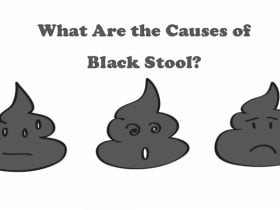Your genes play a major role in determining the texture of your hair, either straight, wavy or curly, and also the thickness of individual strands of hair. Studies have brought about the conclusion that genes influence hair texture and thickness in people of different ethnic backgrounds. For example, in an Asian population, it was observed that normal variations (polymorphisms) [1] in two genes, known as EDAR and FGFR2, have been associated with the differences in the thickness of their hair.
Also, a polymorphism in another gene known as TCHH has also shown to be related to differences in hair texture in people of northern European ancestry. It is likely that many additional genes contribute to hair texture and thickness in various populations.
Several genetic syndromes are characterized by unusual hair texture. These syndromes are caused by mutations in genes that play roles in hair structure and stability, including genes associated with desmosomes which is a specialized cell structure that holds hair cells together, keratins which is a protein that provide strength and resilience to hair strands, and chemical signaling pathways involving a molecule called lysophosphatidic acid (LPA), [2] which promotes hair growth. Some Genetic syndromes that feature hair texture include:
- Autosomal recessive hypotrichosis (caused by mutations in the DSG4, LIPH, or LPAR6 gene)
- Keratoderma with woolly hair (caused by mutations in the JUP, DSP, DSC2, or KANK2 gene)
- Monilethrix (caused by mutations in the DSG4, KRT81, KRT83, or KRT86 gene)
- Uncombable hair syndrome (caused by mutations in the PADI3, TCHH, or TGM3 gene)
Researchers speculate that the gene associated with these disorders probably also contribute to normal variations in hair texture and thickness, although little is known about the roles these genes play in normal hair.
Other factors besides genetics can also influence hair texture and thickness. Some of these factors include:
- Hormones
- Certain medications
- Chemicals such as hair relaxers can alter the characteristics of a person’s hair.
Hair texture and thickness can also change with age, it is possible that as we get older one’s hair changes.
Genetics of Hair Type

The answer to the question, is hair determined by genetics? Yes. Research has shown that your hair’s wave or curl is passed down in your genes. But hair curl is what’s called an “additive” trait, which means that the amount of curl you have depends on how many curly hair gene variations you inherit.
So there’s no guarantee that your children will have curly hair even if you do. There are many different genes involved in the formation of one’s hair. In a few cases, curly-haired parents can have and pass along straight-hair gene variations. That’s why in the same family, hair can be stick-straight, curly as a spring, or anything in between.
Genes can also interact with each other to determine your hair texture.













